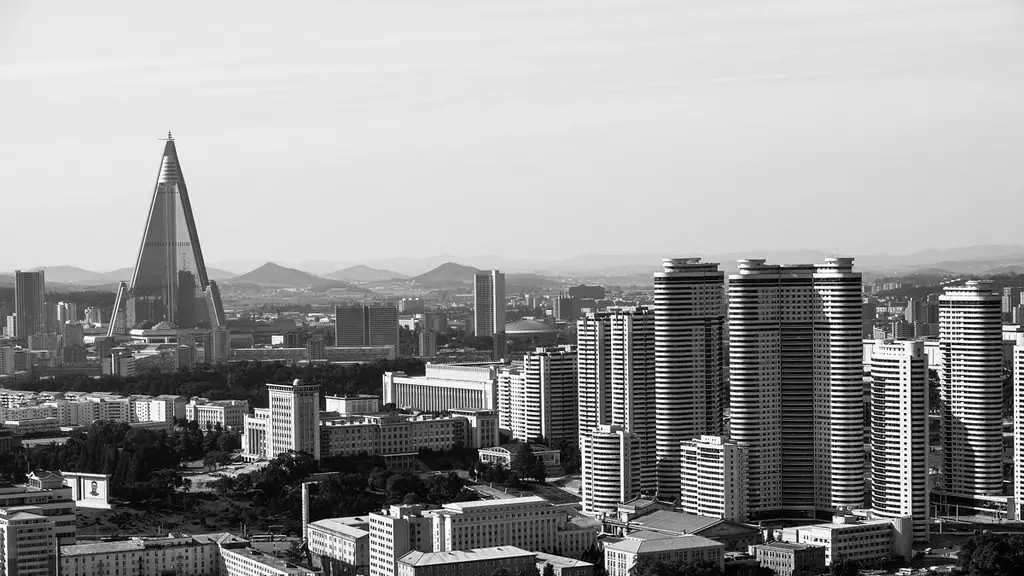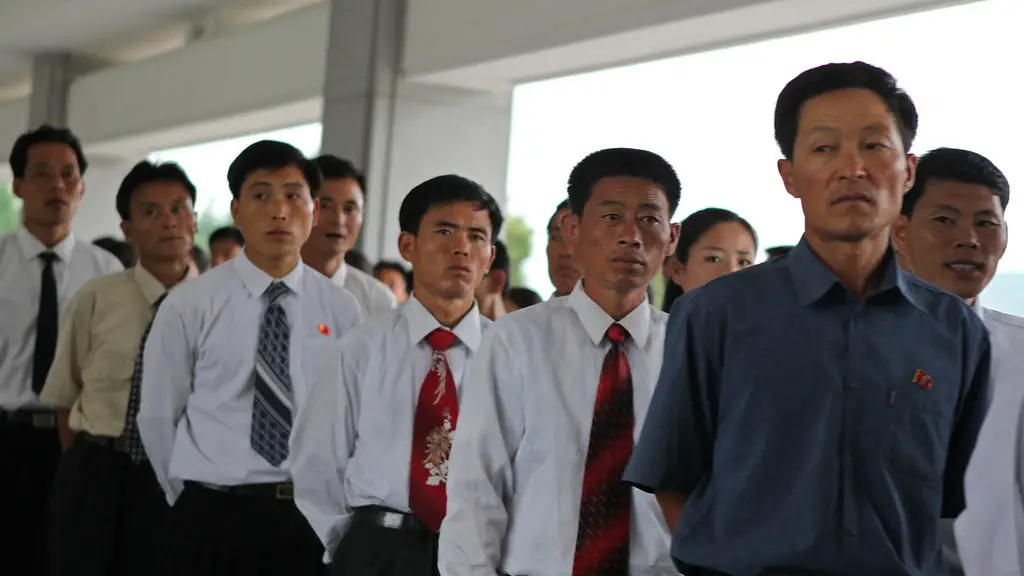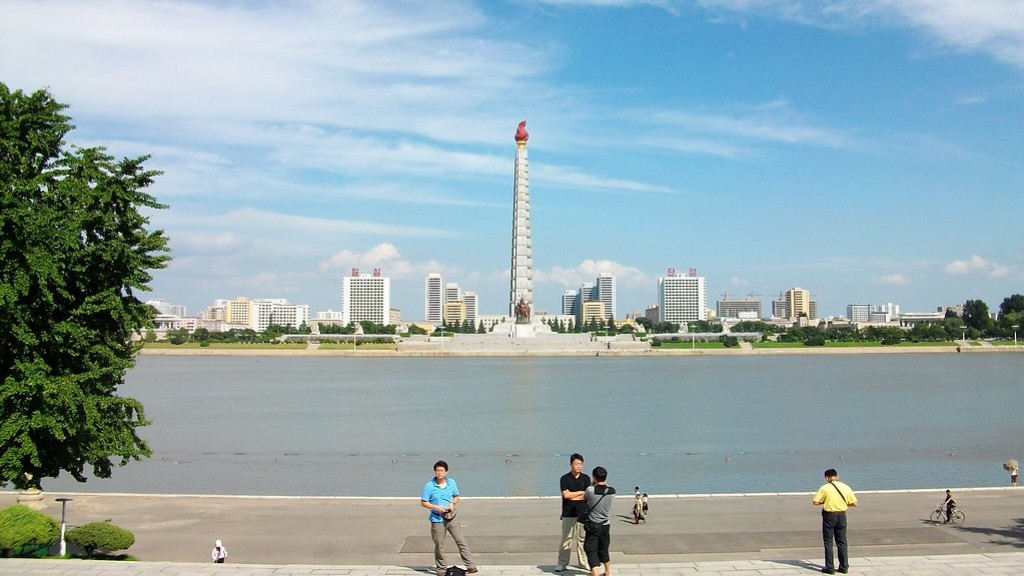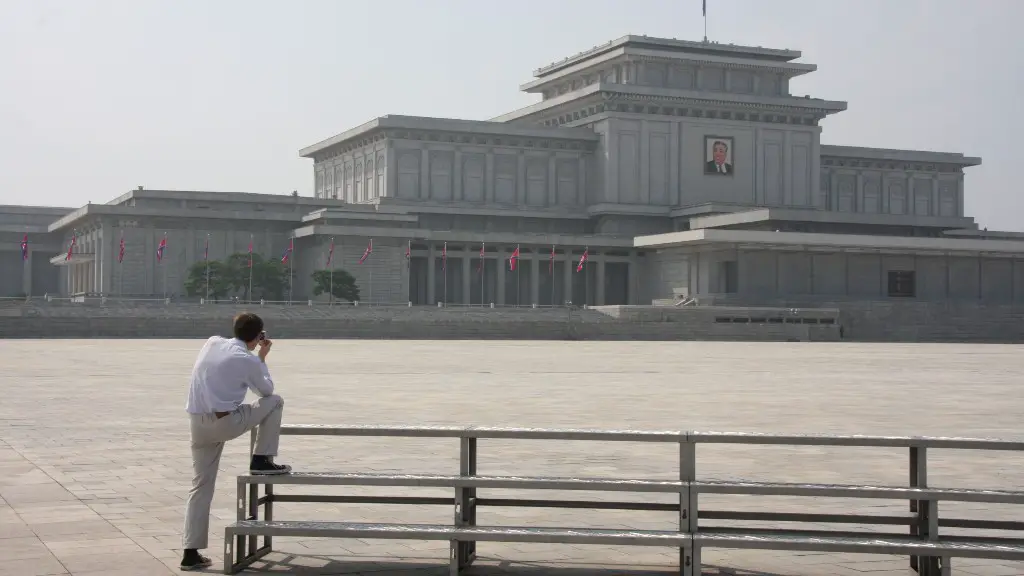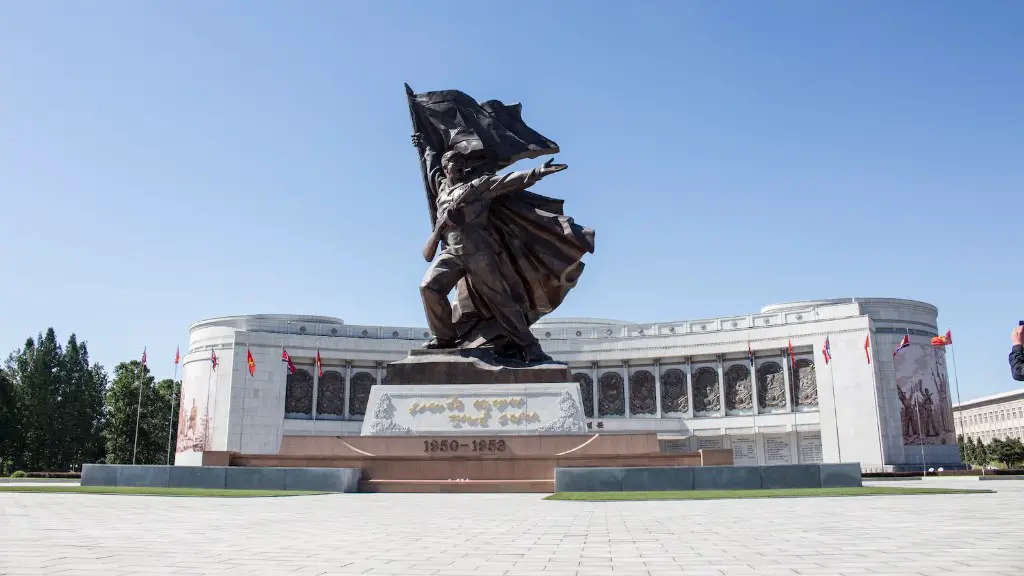Since North Korea is such a secretive country, it is difficult to know exactly what their prisons are like. However, based on the little information that is available, it is believed that the conditions in North Korean prisons are extremely harsh. Prisoners are reportedly starved, beaten, and forced to work long hours in difficult conditions. Many prisoners do not survive their time in prison, and those who do are often left with permanent physical and psychological damage.
Prisoners in North Korea are kept in conditions that are inhumane and unbearable. They are starved, beaten, and tortured on a regular basis. Many prisoners are forced to work in labor camps, where they are treated even worse. Conditions in North Korea’s prisons are so bad that many prisoners have died as a result of the abuse.
How do they punish people in North Korea?
Forced labor as punishment is a controversial topic. Some people believe that it is an effective way to rehabilitate criminals, while others believe that it is a form of torture. In North Korea, forced labor is the main form of punishment used. The government believes that by forcing people to work for their country, they will grow an appreciation for it and be less likely to commit a crime against it. However, many human rights groups believe that forced labor is a form of torture and that it should not be used as a form of punishment.
The North Korean government operates different types of labor camps, including political prison camps (kwan-li-so) and reeducation labor camps (kwo-hwa-so). Kaechon is one of these labor camps, and is said to hold 15,000 prisoners who are all serving life sentences. The camp is approximately 60 square miles in area.
What can you be jailed for in North Korea
In many cases, people are sent to prison without trial in North Korea for trivial offenses. These can include something as simple as listening to a foreign radio station, throwing away a paper with a picture of Kim Jong Il on it, or making a comment that is deemed to be an insult to the regime. Often, these people are subjected to harsh conditions and treatment while in prison, and many do not survive their sentences.
If you are traveling to North Korea, it is important to be aware of the country’s strict laws about what you can bring into the country. It is illegal to bring in religious, pornographic or political items. All published material and electronic devices must be declared when you arrive. It is also illegal to knowingly or unknowingly possess items that breach North Korean law.
What is punishable by death in North Korea?
North Korea has some of the most strict laws in the world, and one of the most serious offenses is leaving the country without permission. If you are caught trying to leave North Korea, you will be charged with “treachery against the nation” and will be punishable by death. The United Nations Commission of Inquiry on human rights in North Korea has found that those who are forcibly returned to North Korea by the Chinese government face crimes against humanity.
The death penalty is a punishment used in North Korea for many offences. These include grand theft, murder, rape, drug smuggling, treason, espionage, political dissidence, defection, piracy, consumption of media not approved by the government and proselytizing religious beliefs that contradict practiced Juche ideology. The death penalty is carried out by means of execution, and public executions are not uncommon in North Korea.
Are North Koreans allowed to leave?
North Koreans are not free to travel around their own country, let alone travel abroad. Emigration and immigration are strictly controlled by the government. This means that North Koreans are not able to freely choose where they live or work.
A country’s description can vary depending on the context in which it is being described. For example, North Korea may be described as “never changing” in one context, while in another context it may be described as “varying, depending on the sentence.” Similarly, Pakistan may be described as “25 years old” in one context, while in another context it may be described as “varying, depending on the sentence.”
Are phones allowed in North Korea
In North Korea, smartphones were first introduced in 2002 but then banned from 2004 to 2008. The ban was lifted when Egyptian telecommunications company Orascom Telecom Media and Technology Holding, in a joint venture with the state, established a new 3G mobile phone service named Koryolink. However, North Koreans are now required to turn in their smartphones when leaving the country.
If the defectors are caught in China, they are repatriated back to North Korea, where rights groups say they often face harsh interrogations and years of punishment, or even death, in kwalliso prison camps (such as the Pukch’ang camp), or in kyohwaso reeducation camps (such as the Chungsan camp or Chongo-ri camp).
What happens to your family if you commit a crime in North Korea?
The “guilt by association” system in North Korea means that one can be punished for a crime one did not commit. relatives to the offender, up to three generations, will be imprisoned as well.
In recent years, the United States has significantly restricted the ability of its citizens to travel to North Korea. The restrictions in place previously restricted Americans’ ability to engage in direct exchange activities with DPRK citizens, have direct contact with North Korean individuals within the DPRK, and travel by train between Sinuiju and Pyongyang.
The US government has cited a number of reasons for these restrictions, including the risks to US citizens posed by the North Korean government and the lack of consular access for US citizens in the event of an emergency. Americans who do travel to North Korea are required to obtain a special validation from the US Department of State.
What is the haircut law in North Korea
The North Korean haircut rules are primarily concerned with men’s hair, which should be kept between 1-5 cm in length and trimmed every 15 days. Women are allowed to choose from one of 14 slightly longer styles, but spiked hairstyles are banned because the government perceives them as being rebellious.
Although many North Koreans own automobiles, the state severely restricts their use. According to North Korean exile Kim Ji-ho, unless a civilian driver receives a special permit, it is forbidden to drive alone (the driver must carry passengers). These regulations, combined with the lack of access to gasoline and spare parts, make it difficult for most North Koreans to use their vehicles.
How do they execute prisoners in Korea?
In South Korea, capital punishment is a legal penalty. As of December 2012, there were at least 60 people in South Korea on death row. The method of execution is hanging.
There is no shortage of booze in North Korea, and no limit on consumption. It could even be considered a national pastime – much like life in South Korea, China and much of East Asia. The most popular drinks are soju, a distilled rice liquor similar to vodka, and maekju, beer. There are also a variety of fruit wines and rice wines.
Conclusion
There is little information available about the prison system in North Korea. However, based on reports from defectors, it is believed that conditions in North Korean prisons are extremely harsh. Prisoners are believed to be subject to forced labor, beatings, and other forms of abuse. There are also reports of prisoner executions.
There is not a lot known about prisons in North Korea because of the lack of information that comes out of the country. However, what is known suggests that they are brutal places where prisoners are subjected to hard labor, little food, and harsh conditions.
